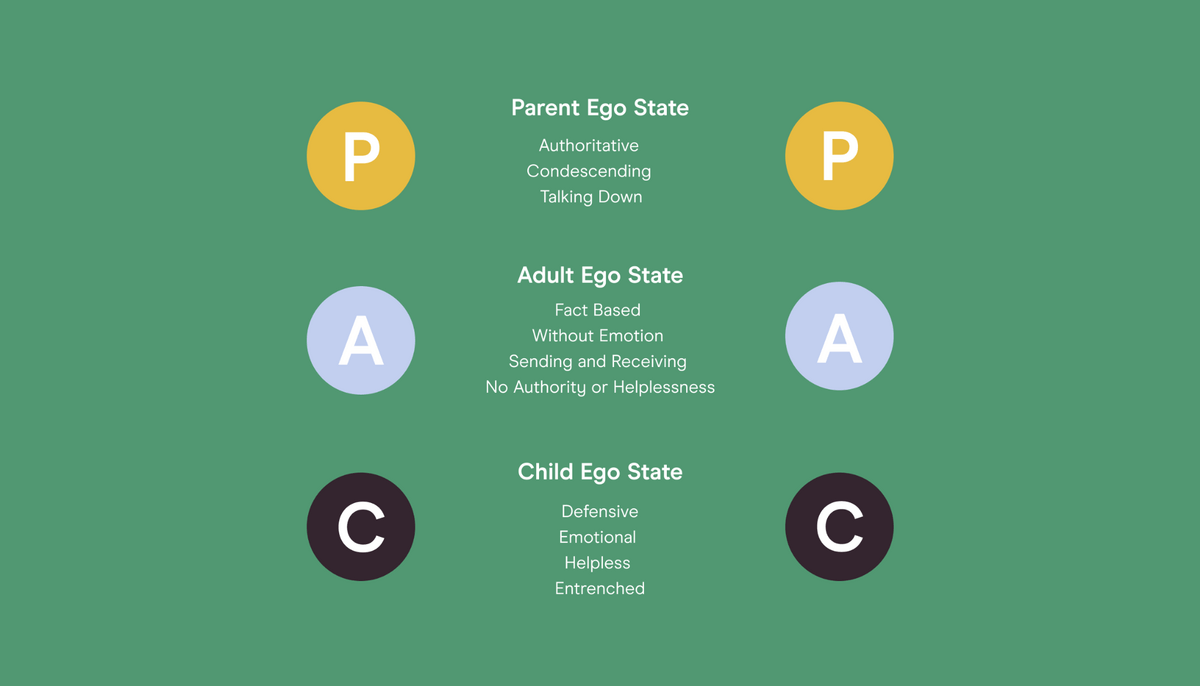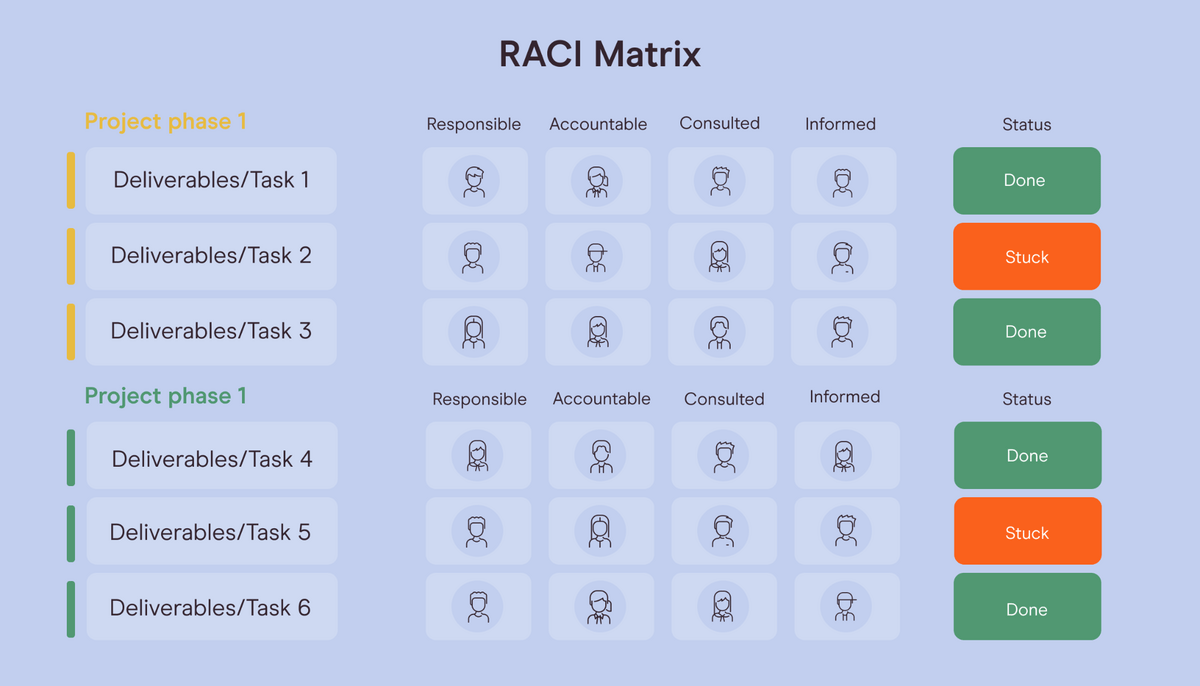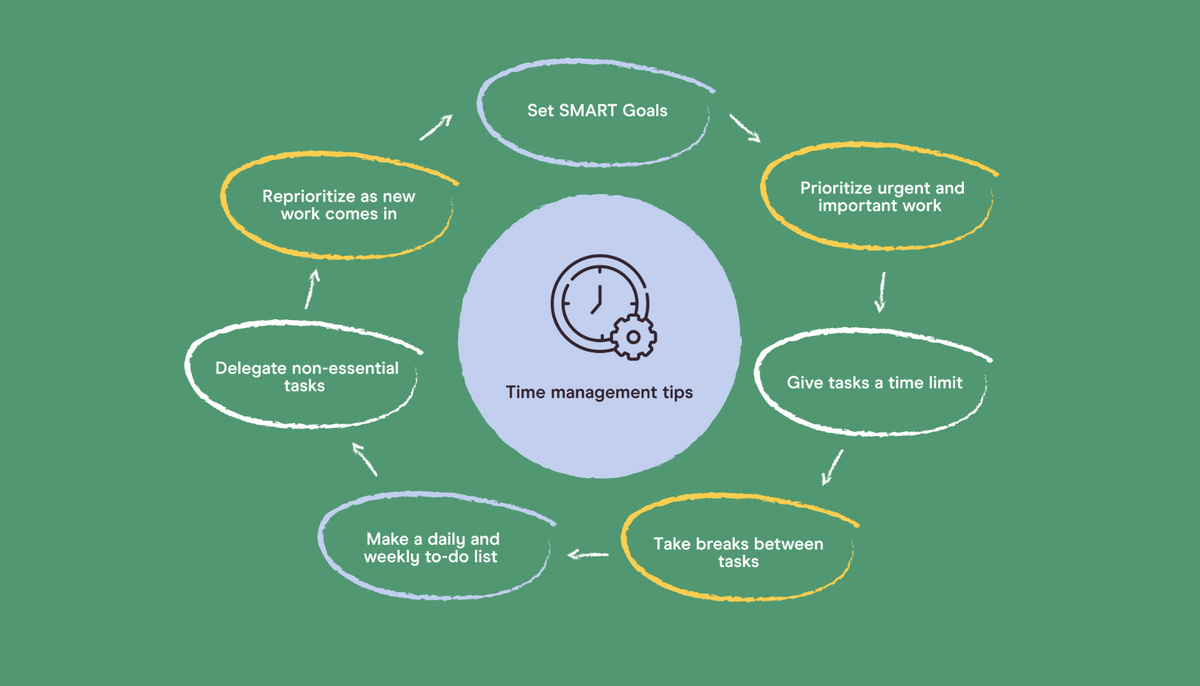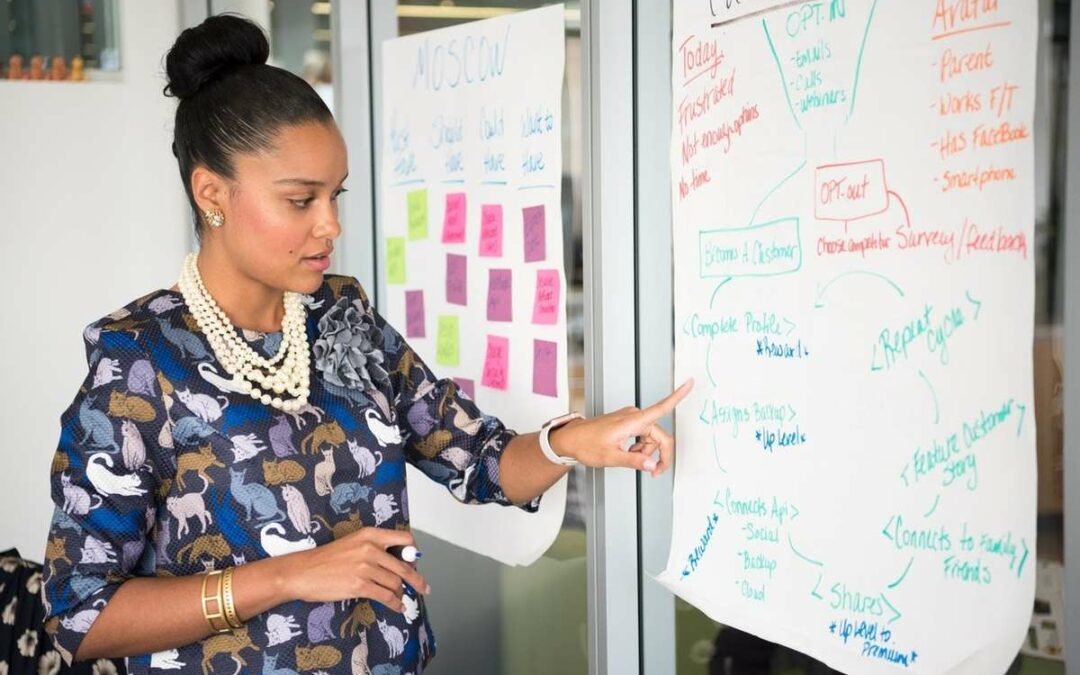Accountability is about doing what you’ll say you’ll do. Organizations can encourage accountability through reporting transparently, rewarding honesty, and eliminating a culture of blame.
However, accountability really begins with individuals. People with strong personal accountability have the integrity to do the right thing at the right time, regardless of whether others would notice.
In this article, we’ll explore precisely what personal accountability is and what benefits it can bring. Plus, we’ll offer seven ways to develop and maintain individual accountability.
What is personal accountability?
Personal accountability is about taking ownership. It’s about accepting the consequences of the choices you make and the actions you take.
Whatever those consequences are, you don’t blame others or make excuses for them.
If something goes well, you are confident about recognizing your contribution. If something goes poorly or could be improved, you acknowledge that and do what you can to make things better.
While there are several definitions, research suggests there are five crucial components of accountability:

- Obligation: A duty to take action with an expectation of adverse consequences if that action isn’t taken
- Willingness: Acceptance of the obligation by choice or without reluctance
- Intent: A sense of purpose that leads to the action being taken
- Ownership: Having the power to take the action
- Commitment: The feeling of being emotionally compelled to take the action
Accountability is not the same as responsibility. For example, say you’re leading a team of builders who are completing a staircase.
The builders are responsible for building a safe and secure staircase for the people who will use it. However, if the handrail breaks and someone falls down the stairs, they’re not accountablefor the consequences.
However, the building company may be held accountable for the consequences of their product being substandard and may have to pay healthcare costs or legal fees.
Responsibility can be shared across a team — for example, the responsibility to provide excellent customer service to your clients.
Personal accountability is understanding that responsibility and taking specific action to ensure individual customers are satisfied and complaints are resolved.
What are the benefits of being more accountable?
There are several benefits to developing a strong sense of personal accountability. These include:
1. Building personal credibility
Holding yourself personally accountable for your actions and decisions increases your credibility. Team members and leaders alike trust your ability to deliver what you say you will when you say you will.
People begin to rely on you knowing that you won’t let them down and, should any problems arise, you’ll work hard to correct them and find a positive outcome for everyone involved.
This is vital in a business environment where unreliable or unhelpful employees can harm a brand’s reputation.
It’s also critical for high-performing teams where the outcome is dependent on everyone delivering their expected contribution.
2. Developing positive professional relationships
Staying personally accountable without blaming others is a mature response to solving issues that can help develop positive relationships.
Transactional analysis is a popular psychology concept that studies social interactions to determine an ‘ego-state.’
As we engage in conversations, we enter an ego-state which mimics either parental, adult, or child-like behavior. Which state we choose can affect the outcome of our discussion.
Working to develop an adult ego-state is more likely to result in win-win outcomes and positive professional relationships in the workplace.

Let’s consider a customer making a complaint about a delayed order. Here are some potential ego-state responses:
Parent: “You’re right, it’s terrible.”
Child: “Well it’s not my fault. I had nothing to do with it.”
Adult: “I do see the problem you have. What can I do to put it right?”
Neither the parent (pacifying) nor the child (complaining) response is likely to appease the customer and solve their issue. Developing personal accountability and choosing to pursue an adult ego-state helps to result in a resolution and a happier customer.
Choosing an adult state can also improve professional relationships with colleagues as you work together to find a win-win solution to problems.
3. Decreasing stress
When something goes wrong, a significant reason we feel stressed is that we’re worrying about how others will perceive the problem.
Taking immediate responsibility for any mistakes reduces this anxiety and means you can solve the problem quicker.
Plus, personal accountability reduces stress across your entire team.
Others can rely on you to get work done, which means they’re not worrying about having to pick up the slack. And they know that if problems arise, you’ll do your best to solve them while minimizing any impact to the wider team.
4. Increasing productivity
When people take ownership of task completion and problem resolution, it can significantly impact productivity.
Work can be completed more effectively, as it’s clear who’s doing what and nothing gets missed or duplicated. Personal accountability means people step up to deliver when they say they will, which improves scheduling and efficiency.
Time isn’t wasted trying to understand the nature of problems that arise or where the fault lies. This means there’s more time available each day to get the things done that create value for your organization.
7 steps to developing and maintaining personal accountability
Now that you’re clued in as to why personal accountability is important, let’s break down the seven key steps in developing it:
1. Understand your responsibilities
It’s much harder to take personal accountability when you’re unclear about precisely what you’re responsible for and what tasks you own.
Ask your line manager for guidance about the exact scope of your role and clarify anything you’re uncertain about.
Using a ‘responsible, accountable, consulted, and informed’ (RACI) matrix can help pinpoint exactly where accountability for tasks lies.
It can also show who is responsible for and who should be consulted about specific tasks versus those who just need to be kept informed. The RACI matrix provides an easy way to outline responsibility for pieces of work.

While personal accountability can sometimes mean stepping up to deal with issues you shouldn’t have to be responsible for, modeling it effectively starts closer to home.
2. Be honest when you make a mistake
The dawning realization that you’ve made a mistake is horrible to experience. In those moments, it’s good to remember we’re all human and that we all make them.
When you make an error, take responsibility for it proactively — don’t wait to get caught. Owning up to your mistakes showcases personal accountability and cements your integrity.
Don’t shift the blame or make an excuse, but do point out anything that contributed to the mistake being made so it can be corrected in the future.
Companies should work hard to move away from a blame culture. They should instead view mistakes as learning opportunities. Personal accountability and ownership help reinforce that organizational mindset.
3. Apologize
Apologizing can feel hard. No one likes to admit they’ve made a mistake, but saying sorry is a simple way to diffuse any situation.
Make sure you’re authentic when you apologize. Be clear you know what you’re apologizing for and the impact that it’s had.
4. Take responsibility for resolving issues
Apologizing is a great first step at making amends for any issues encountered. However, to truly solve problems that have affected customers or colleagues, you also need to take action.
Take responsibility for making things right, even if it’s not really your problem to solve.
Really listen to what the issue is and explore what it would take to make things right. Once a resolution is agreed upon, follow-up as necessary to make sure action has been taken and the issue can be closed.
After solving the problem, make sure to give feedback to the team or department where the problem originated. Not only does that let them know there’s an issue they may need to address, but it also confirms that the issue has been dealt with this time.
Plus, by sharing how you solved the issue, you offer that team a ready-made solution if the problem happens again.
5. Be reliable
A crucial part of personal accountability is delivering what you say you will when you say you will. To do this effectively, it’s vital that you’re clear on what you need to achieve and that you don’t overcommit.
Of course, we all want to please others, and as colleagues begin to appreciate how valuable you are, there’ll be a steady stream of work heading your way.
Creating appropriate boundaries is key if you don’t want to ruin all the hard-fought credibility you’ve established.
As work comes in, write down the scope of the task and when it’s due, and confirm that with whoever gave you the work.
If additional tasks threaten to overwhelm you, seek support to prioritize your work. Then, as new tasks come in, confirm with your manager what work you can remove or delay to accommodate the additional tasks.
If anything is going to be delayed, make sure you communicate that as early as possible so others can also manage their workload effectively.
Effective time management is a crucial soft skill you need to master in order to advance your career.

6. Look for improvements
There are always opportunities to make improvements to the work or processes you’re responsible for.
When you spot that something could be done more effectively, or an issue arises that shows something needs to change, get analyzing. Figure out why the problem occurred, consider options for improvement, and take action to ensure it doesn’t happen in the future.
If you notice where a process could be improved with your wider team or senior management, bring solutions, not just problems, to the table.
Propose how things could be done better, what positive impact you think the change will have, and what you believe the first step needs to be.
Then, take ownership for driving any agreed changes forward.
7. Acknowledge your successes
Taking personal accountability is also about allowing yourself the opportunity to acknowledge the things you’ve contributed to and have done well. These are as useful of a learning experience as things that went poorly.
Make sure you take ownership of your achievements and take the time to celebrate your successes. Gather feedback from customers or colleagues about how your specific action delivered benefits and raise these at your performance review.
If you don’t feel you’re getting the recognition you deserve for a job well done, don’t be afraid to gently point out the positive impact you’ve had to your manager.
Integrity is core to personal accountability
It can feel challenging to hold yourself personally accountable for your choices and actions. It may require admitting you’re wrong or that you made a mistake.
Ultimately, taking responsibility reduces your individual stress and helps you build credibility.
Managers, teammates, and friends grow to rely on you knowing that you’ll do what you say you will and, if something goes wrong, you’ll do your best to make it right.
Team leaders and managers can be a source of inspiration for their teams and help them develop personal accountability. If you’re a leader looking to build your skills in people management and leadership, check out Pareto Labs’ courses on these topics.
Pareto Labs offers engaging on demand courses in business fundamentals. Built to help you elevate your game at work, our courses distill complex business topics — like how to read financial statements, how to manage people, or even how to value a business — into digestible lessons. No business background required. Our library of 200+ lessons will teach you exactly what you need to know to use it at work tomorrow. Sign up for a free trial today to start watching.

